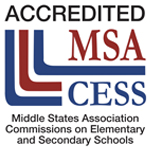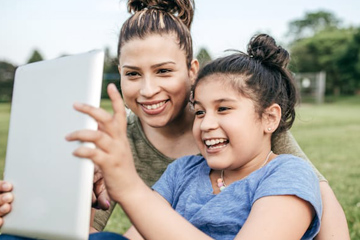
How to keep screen time safe, fun, and meaningful. Jenn Horton on May 31, 2019
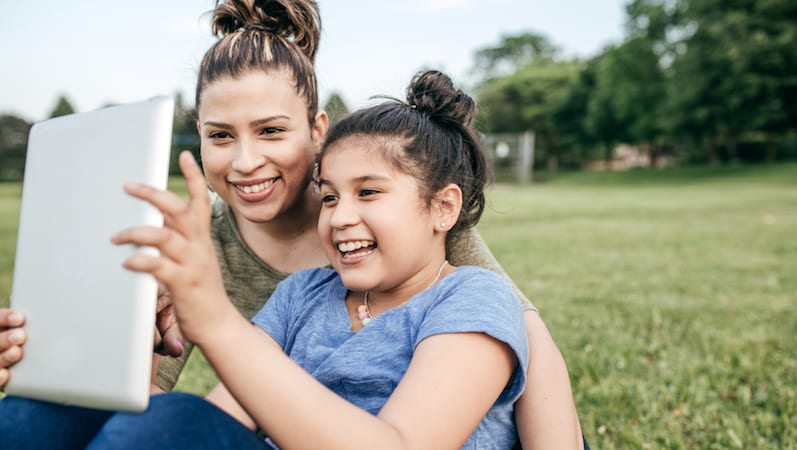

Brought to you by Messenger Kids
Messenger Kids is a free video calling and messaging app that makes it easy for students to connect with friends and family on a tablet or smartphone. Parents approve contact lists and set usage allowances. Kids nurture relationships, have fun, and learn through embedded STEM and literacy activities. Check out the app yourself here.
As school wraps up, chances are you’ll be sending students off with fond farewells (and a summer reading list). But it’s also a good time to chat about ways to make screen time fun and educational too.
The American Academy of Pediatrics says that kids spend up to seven hours a day on screens, and summer time can make those numbers climb higher. And while we can encourage balance and offscreen hobbies, we can also make time onscreen more meaningful and rewarding. How?
1. Chat about online safety basics.
According to one 2017 study, two-thirds of young people say they would like schools to provide more support on online safety issues. Why? It’s an issue kids are facing every day, with nearly half reporting receiving threatening or intimidating messages.
Where to start? Connect Safely offers tips and advice to help teachers guide students to take on more responsibility in their digital lives. We also like this clever video from Brain POP Jr., with easy and hard quiz options to test what students have learned.
2. Collaborate with families.
Of course, we can’t keep students safe online without having families on board. That’s why, in partnership with our friends at Messenger Kids, we created this free one-page flyer to email or send home, sharing our top tips for parents to help their kids nurture healthy digital habits this summer. It’s available in Englishand Spanish versions.
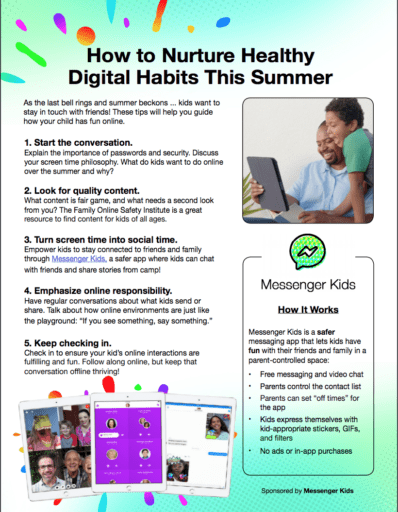
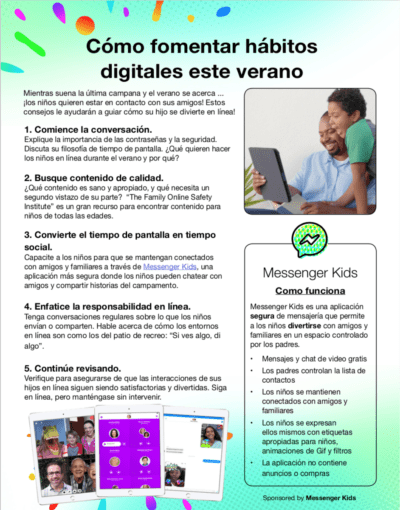
3. Teach smart social media habits.
There are two important messages to share when it comes to social media. The first is that what students post, send, or share is forever. Talk about how what they share informs how their school community and family sees them … and how they see themselves.
The second is that digital citizenship matters. Online environments are no different than the playground: “If you see something, say something.” Letting students know what kind of behavior is okay is critical for a safe and positive online experience.
4. Recommend kid-friendly tools.
If there’s one thing the internet isn’t short on its choices, and the number of kid-safe options continues to grow. A few of our favorites include search engines like Kiddle and Safe Search Kids as well as the video and messaging app Messenger Kids.
5. Use tech to nurture IRL friendships.
Some of your students may be having far-flung adventures this summer, while others stick closer to home. No matter where their summers take them, encourage kids to take advantage of digital tools to stay in touch with one another. You might even challenge them to share reading recommendations or summer bucket list items.
And don’t forget to get your free flyer that shares online safety tips and send it home to families! Just click the orange button below to get the PDF.
Get My Free Parent Flyer (English)
Get My Free Parent Flyer (Spanish)
Posted by Jenn Horton
Jenn is an editor for WeAreTeachers and SchoolLeadersNow. She used to work for Oprah for over a decade, teaching folks to “Live Their Best Lives” online and in real life…and she continues to try that herself too (mostly). Her work has appeared on WebMD, CNN, Amazon and various online publications. She lives in Chicago with her husband and two kiddos.


